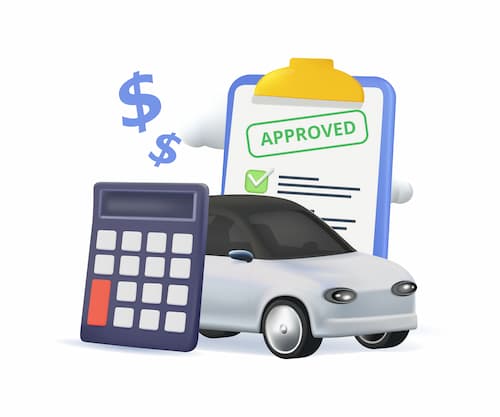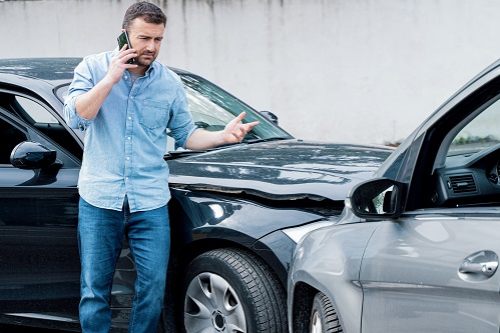- Can you get insurance on a totaled car?
- What are the challenges to insure a totaled vehicle?
- Is it illegal to drive a totaled car?
- Is it worth insuring a car that has been totaled?
- Can you keep a totaled car?
- Can you drive a car with a salvage title?
- How does a rebuilt title affect insurance?
- Frequently asked questions
Can you get insurance on a totaled car?
Insuring a total loss vehicle is possible, but obtaining full coverage car insurance can be difficult, if not impossible. Companies that write car insurance policies for a vehicle with a rebuilt title or salvage title tend to offer liability only.
The insurance company may want to do an inspection or require a statement from a mechanic saying that the car is roadworthy.
For example, State Farm may provide a vehicle previously declared a total loss with a salvage title with comprehensive and collision coverage if the vehicle has been repaired, subject to underwriting. However, not all cars will qualify. Having your own collision coverageCollision coverage helps pay for repairs or replacement of your car if it's damaged in an accident, regardless of who is at fault and is subject to a deductible. can help in receiving payments for vehicle loss, even if a deductible is required, rather than relying solely on the at-fault party's insurance.
“State Farm won’t insure a car that State Farm itself has declared a total loss,” says State Farm spokesperson Benjamin Palmer. “So, if you want to stay with your current company – for instance, if you want to keep a multiline discount – and you have State Farm insurance, you may be out of luck. State Farm will, however, insure a salvaged car that has been totaled out by another insurer.”
What are the challenges to insure a totaled vehicle?
When a car is totaled, the insurance company will typically offer a settlement amount based on the car’s actual cash valueActual Cash Value (ACV) is the current market value of your car, considering depreciation. It's the amount your insurance will pay if your car is totaled or stolen. (ACV). The type and extent of insurance coverage available for total loss vehicles can vary depending on your insurance policy and the specific circumstances of the loss. While some policies may offer comprehensive coverageComprehensive coverage helps pay for damage to your car caused by events other than a collision, such as theft, fire, vandalism, or natural disasters. It is subject to a deductible., others might only provide liability coverage, especially if the vehicle has a salvage title.
Collision and comprehensive insurance
Collision and comprehensive insurance are two types of coverage that can help pay for damages to a vehicle in the event of an accident or other covered loss. If a car is totaled, these coverages can help pay for the ACV of the vehicle, minus any deductible. Collision insurance covers damages resulting from a collision with another vehicle or object, while comprehensive insurance covers non-collision-related incidents like theft, fire, or natural disasters.
However, it’s essential to note that collision and comprehensive insurance may not cover the full value of the vehicle, especially if the vehicle is older or has high mileage. In such cases, the insurance company may only pay out the ACV, which could be lower than the vehicle’s actual value. This is why understanding the limitations of your coverage is important when insuring a totaled car.
Gap insurance and new car replacement insurance
Gap insurance and new car replacement insurance are two types of coverage that can help bridge the gap between the ACV of a totaled vehicle and the actual amount owed on the vehicle. Gap insurance is particularly useful if you owe more on your car loan or lease than the car’s ACV. It pays the difference between the ACV and the remaining balance on your loan or lease.
New car replacement insurance, on the other hand, covers the difference between the car's cash value and the cost of purchasing that exact car again new. When you drive a new car off the lot, it officially becomes a "used" car and loses value immediately. If you total your new car on your way home from the dealership, the car's cash value would be less than the cost of replacing it. Replacement coverage would make up the difference, allowing you to buy another car exactly like the one you totaled.
Is it illegal to drive a totaled car?
Although state laws vary, it's generally illegal to drive a car that doesn't meet the requirements to be on the road. However, if your vehicle can be registered and insured in your state, it's legal to drive it.
Not all total losses are due to damage that affects the vehicle's safety on the road. For example, a car may be totaled due to hail damage, which does not affect its function. In that situation, you will likely be able to drive it as long as you can insure it.
In any case, if the car is totaled but still runs, you'll have to take the appropriate steps to make it legal to drive.
Is it worth insuring a car that has been totaled?
If you have a totaled car that is still drivable or has been repaired, you must insure it to be on the road legally. Liability insurance is required by law in most states, so you need insurance whether you’re driving a totaled car or a brand-new one.
However, in most cases, carrying full coverage insurance for a totaled car is not worth it. That’s because a car with a salvage title has lost most of its value. This might not be the case if you have a collector car. Insuring a totaled car with full coverage isn't always possible, as many insurance companies will only offer liability insurance.
During repairs, if your car is in a garage and non-operational, you probably don’t need to insure it.
Can you keep a totaled car?
One of the options for a totaled car is to keep it, which is legal in most states. If you keep your salvage vehicle, you will be paid the actual cash value of the car minus the salvage value and the deductible. The actual cash value is assessed based on the retail market value, which insurers use to determine the amount owed to you, especially when comparable cars can't be found nearby.
The salvage value is the amount the insurance company would have gotten from a salvage yard for your car. Since you’re keeping the car, you won’t be paid that amount.
If you’re considering salvaging your totaled vehicle, there are some factors that you’ll want to consider before you decide.
- Cost of repair. Is it worth it to repair a totaled car? The insurance company didn’t think so.
- Insurance. Find out if you can insure the car and what it will cost.
- Resale value. The actual cash value of your car will be much lower after salvage.
- State laws. Make sure it’s legal in your state to keep your totaled vehicle even if it is not drivable.
- Financing. You may need the insurance payout to cover your loan.
Can you drive a car with a salvage title?
If your car has a salvage title, you can't legally drive it on the road until you’ve had the car inspected, gotten a new title and registered it with the Department of Motor Vehicles. The title on a car that has been repaired and inspected may be called a rebuilt title rather than a salvage title. The formula for total loss cars depends on the state.
Once you have done this, you must get the required insurance in your state to drive the car.
How does a rebuilt title affect insurance?
Insurance for a rebuilt car is more expensive, usually because the insurance company is taking the risk that the car wasn’t repaired properly or fully and could be dangerous on the road.
If you have a car with a rebuilt or salvage title, you will likely find it difficult to get full coverage insurance. While a car can be totaled twice, the value of a previously totaled vehicle is much lower. You won’t see the same amount of money the second time around.
Frequently asked questions
Can you drive a totaled car?
Yes, driving a totaled car is permitted, as long as the car is safe to drive and is registered and insured.
How do you know if your car is totaled?
The insurance company will notify you if your car is totaled based on your state's total loss threshold.
What happens when your car is totaled but still drivable?
Whether or not the car is drivable, a totaled vehicle will belong to the insurance company unless you make arrangements to keep it.



